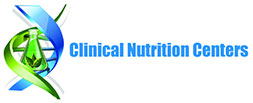Daily Vitamins Every Man Needs

A few weeks ago, every person you ran into was asking, “What’s your New Year’s Resolution?” Some people want to make more money. Others want to spend more time with family. However, one of the most common resolutions we all hear is, “I want to be healthier.” Better health is key to a higher quality of life, so it’s no wonder that so many want to optimize their routines to take better care of themselves.
However, it can sometimes be difficult to know exactly what that means. Be more active — sure, that’s a given for most people. Eat less junk food — again, an obvious one. Get my proper daily vitamin intake — maybe not so obvious. While we all understand that vitamins are necessary for optimizing our health, relatively few people know which vitamins they need. The daily requirements vary from person to person based on a variety of factors but, with a little bit of research, anyone can maintain a healthy daily vitamin routine.
The journey starts with knowing the basic vitamin requirements that apply to you. In this post, we’ll explore some of the basic vitamin requirements for men.
Vitamin D
An easy way to remember Vitamin D is “Vitamin Daylight.” The sun is your friend when trying to get this essential vitamin for bone strength. Vitamin D works by helping the body use the calcium you take in from your diet. Men deficient in Vitamin D may experience bone pain and muscle weakness. However, there are more serious potential health problems associated with the deficiency that you should discuss with your physician if you believe you may be at risk.
More of an inside person? You can also get Vitamin D from milk, some fish and fish oils, and egg yolks. None of those in your diet? No worries, you can also take supplemental Vitamin D, such as this 1,000-IU dose found in Clinical Nutrition Centers’ web store! Supplemental Vitamin D is generally regarded as safe by experts.
Vitamin A
Vitamin A, otherwise known as “Retinoid” or “Beta-Carotene,” helps your vision, promotes a healthy immune system, and assists with cell growth. The retinoid form of Vitamin A comes from animal products. Good examples include eggs, whole milk, liver, and certain cereals. The beta-carotene form comes from plants. Examples of vegetables that contain Vitamin A include sweet potatoes, carrots, spinach, and apricots. Vitamin A, in the retinoid form, is also often used in topical treatments for skin conditions, such as acne.
Most people will get enough Vitamin A from their diets. However, if you consistently experience dry eyes or find you get sick easily, ask your doctor about Vitamin A deficiency. In most cases, you shouldn’t start a Vitamin A supplement on your own, as too much Vitamin A can cause nausea, headaches, dry skin, and joint pain. Overconsumption of Vitamin A has also been linked to bone density and liver problems. Always talk to your physician about the risks and benefits before starting any supplement, especially Vitamin A.
Vitamin C
Most people know this nutrient for its immune-boosting capabilities. This safe and effective vitamin can help protect you from a wide range of diseases and health complications. Everything from warding off the common cold to helping prevent cardiovascular disease can be attributed to Vitamin C. Vitamin C can be found in a variety of fruits and vegetables, including oranges, broccoli, bell peppers, tomato juice, and more! However, despite its relative abundance, it can be difficult to get enough of this necessary nutrient into your daily diet.
Experts suggest a 500mg daily intake of Vitamin C to see genuine health improvements as a result of the nutrient. While it is possible to eat enough fruits and vegetables in a day to achieve that dose, it would require roughly nine servings of fruits and vegetables a day — a number not practical for most busy schedules. To make up for the deficit, you can take a Vitamin C supplement, such as this one found in Clinical Nutrition Centers’ web store. If you find you catch illnesses like the common cold fairly easily, consider supplementing your diet with Vitamin C.
Vitamin B12
Vitamin B12 is a nutrient commonly found in animal products that has numerous benefits. Energy levels and production of red blood cells are some of the most well-known aspects that B12 assists with, but the list is much longer than that. Your body doesn’t naturally make Vitamin B12, so you have to get it either from eating meat or by taking the man-made supplement form known as cyanocobalamin.
The common recommended daily dose of Vitamin B12 for an adult male is 2.4mcg. There are several signs that you may have a Vitamin B12 deficiency, but the most common are weakness, tiredness, lightheadedness, shortness of breath, or mental issues such as depression or memory loss. If you think you could have a Vitamin B12 deficiency, talk to your physician about the associated risks. In many cases, simply taking a daily B12 supplement, such as this one on our web store, can help reduce the symptoms of B12 deficiency. However, in some cases, physicians may prescribe injections or other forms of Vitamin B12 administration.
Folate
Folate, another B vitamin, is essential for cell growth and metabolism. People often get confused about the terms “folate” and “folic acid.” However, you shouldn’t ponder too long on this. Folate is simply the natural version of the B vitamin found in foods while folic acid is the man-made supplement form. They have the same uses and are equally effective.
Most people in the United States don’t get enough of this essential nutrient. Results of a deficiency can include anemia and other health complications. Symptoms include fatigue, graying hair, mouth sores, tongue swelling, and growth problems. If you experience any of these symptoms, consider talking to your physician about folate deficiency.
Natural sources of folate include leafy greens vegetables, legumes, certain fruits like lemons and bananas, and a variety of fortified grains. Don’t think you get enough folate in your diet? Taking the supplement form, such as this folic acid on our web store, is generally regarded as safe.
The key to a healthy lifestyle is a combination of routine physical activity and the right balance of essential nutrients. Knowing what you need and where to start with your vitamin goals is imperative. The good news is that, with a healthy, well-rounded diet, most men can get close to their daily vitamin goals without supplements. In those cases where you may be lacking, Clinical Nutrition Centers can help. Browse our wide selection of vitamin products on our web store to find the nutrients you need to round out your daily routine!




